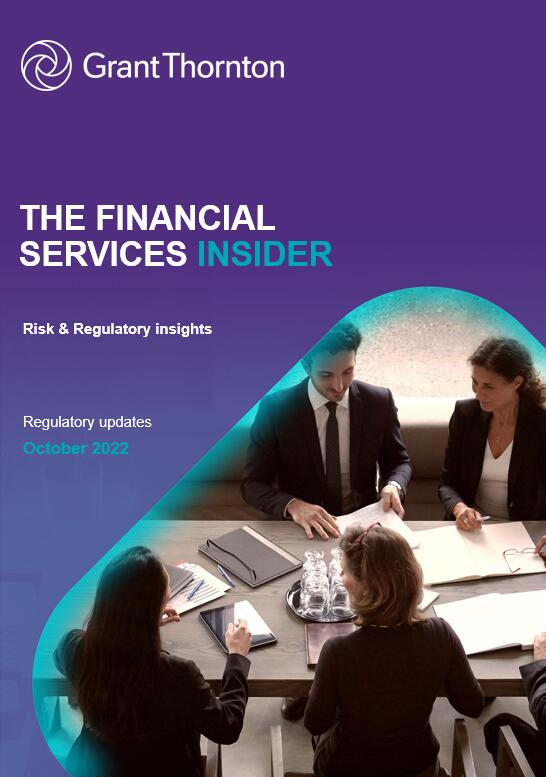
The Financial Services Insider | Issue 10
Grant Thornton’s "The Financial Services Insider" is a Quarterly Newsletter designed to help you navigate the constantly changing regulatory landscape within which your business operates.
"The Financial Services Insider" covers the main regulatory developments in the Financial Services sector, published by the EU and Greek competent authorities the previous quarter, in order to help you remain up-to-date with the most significant regulatory updates affecting your organization.
The most important highlights of the 3rd quarter of 2022
While the Russian - Ukraine war is escalating, and the 8th sanctions package been adopted just a couple of days ago, markets and the economy as a whole are still facing numerous challenges from high inflation, ongoing rate hikes at both sides of the Atlantic, and geopolitical instability while new supply chain disruptions emerge.
Already from the previous quarter ESRB, ESMA and other authorities have concluded that the risks to financial stability have increased quite significantly. More specifically credit risk continues to remain high and expected to increase further while contagion, operational, liquidity and market risks are on the rise.
Against this background and given the continued increases at cost of living and operating expenses, fears about a new generation of bad debts, are increasing, making thus supervisors and regulators more skeptical about the evolutions as despite the good capital and liquidity ratios of the Banks, impairments are generally expected to increase.
These concerns become more obvious when looking at the 2023 work plans as they gradually get issued (e.g. EBA) while increased emphasis is been placed also at aspects regarding digital finance challenges, crypto assets regulations, following the recent evolutions and of course the green agenda continues to remain quite high. Regarding the last aspect, and as EFRAG’s operations continue, last July the European Central Bank (ECB) and the European Systemic Risk Board (ESRB) released a joint report on how climate shocks can affect the European financial system. Among other findings the points that higher corporate defaults and credit losses for banks should be expected in case of not timely taking proper actions, are clearly depicted. Also, at the aftermath of relevant climate stress tests results announcement, various other analysis and decisions were made regarding a variety of climate change / environmental and sustainable finance aspects (e.g. ratings collaterals etc.).

Read the full issue here
Related experts






Related articles
View more


